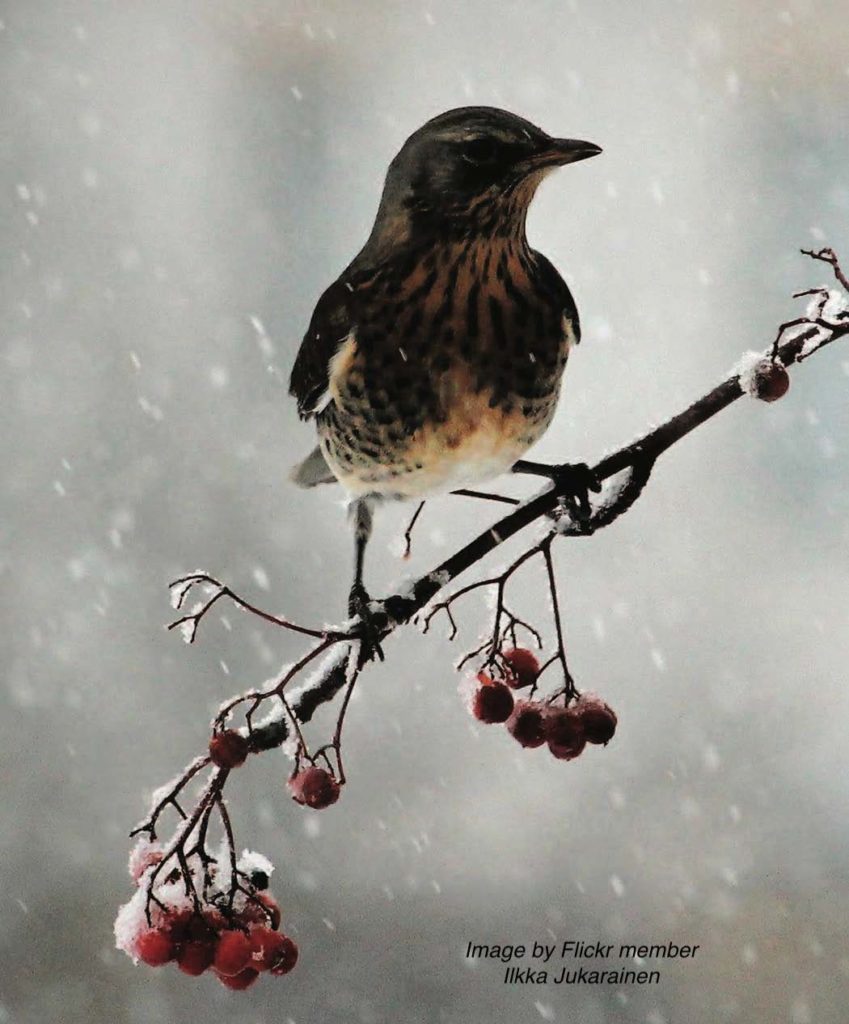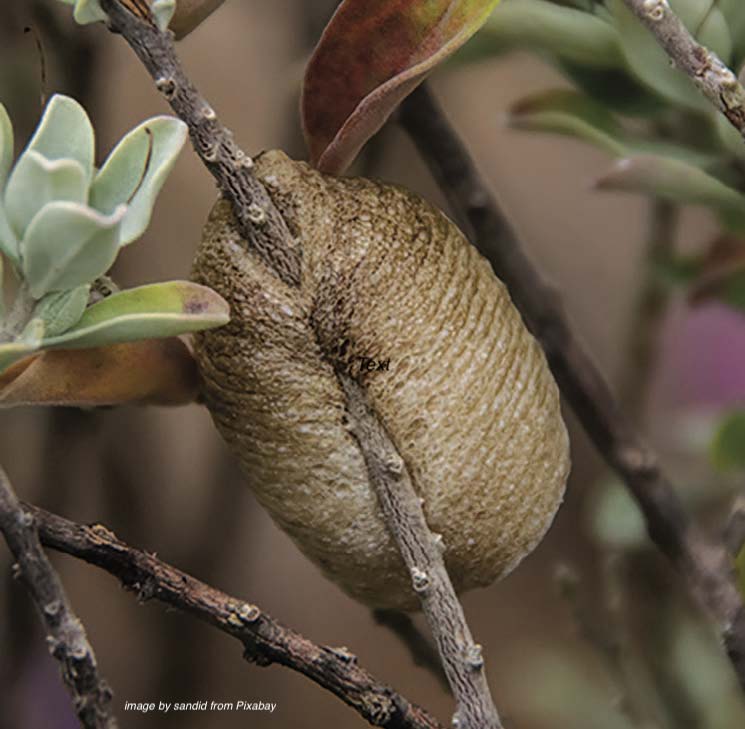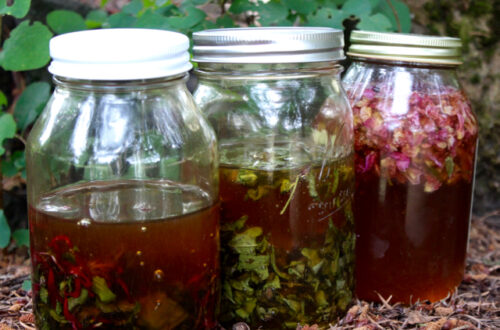An untidy garden can benefit birds and insects
It’s that time of year when plants are turning brown as they complete their time with us after providing tasty food, medicine, and beauty throughout the summer months. Final harvests are being completed and thoughts turn to all the garden and yard clean-up we need to do, including herb beds. Often, we are eager to put the pruners and rake to work while we can still get out without getting completely soaked by the rain here in the Pacific Northwest. After all, preparing tidy herb beds and garden spaces for spring is what we’re supposed to do in the fall, right?
Last spring, the youngest member of our farm family found a praying mantis egg sac on a plant stem that had not been trimmed and cleaned out in the fall. The nymphs were just starting to hatch and we were glad to see them out and about. That got us to thinking – what if we had cut all the stems and cleared them out? Where would that egg sac have spent the winter?
Maybe cutting down all the big lovage stems, raking away the dried marjoram leaves, or trimming the dried berries from the elderberry aren’t such good ideas after all. Many beneficial insects spend the winter in our gardens, just as they do during the summer. Changing when we start our garden clean-up will provide a natural habitat for bugs, butterflies, and birds, so they will be ready for spring to do the jobs we want them to do – eat those pest insects!
When the temperatures start to drop, many insects look for places to hibernate. Native bees may need that hollow stem of beebalm or lovage to survive the cold winter. While the Asian multi-colored Ladybug will seek refuge inside our homes, the native species (of which there are over 400) will look for a pile of leaves or debris at the base of a plant to hibernate. Sometimes they do this with a few friends and sometimes they hibernate in large groups of thousands. In any case, if we leave the garden a little untidy, one of our garden’s best forms of pest control will be ready for work in early spring. Other predatory insects will also spend the winter in the garden if the habitat is available for them. The praying mantis mentioned earlier will spend the winter in the garden as eggs or pupae. The stems of our dried herbs and flowers in the garden provide vital habitat for many an insect.

By cleaning the garden, we may inadvertently destroy more than just wintering habitat and food for birds. Songbirds typically do not “go south” for the winter. The caterpillars and insects hiding in the garden will provide protein for birds during the coldest part of the year. These birds are quite good at gleaning hibernating insects off dead plant stems or branches, and out of leaf litter. They will also appreciate the berries left on the elderberry or other plants with leftover seeds or berries.
Just like the birds, not all butterflies head south like the Monarchs. Some overwinter in their adult stage hidden in garden debris, while others leave their larvae to winter over. Dill, fennel, lovage, and nettles are ideal host plants for these larvae, so be sure to leave some behind in the herb beds. Bonus – you’ll have dill coming up early in the spring before anyone else does!
Perhaps you’re thinking there is more time in the fall for all that clean-up. Harvests are over and life, a little like the garden, is slowing and getting ready to hunker down for the winter. Perhaps you’re not ready to make a full-blown change in your fall routine, but you’re willing to give some thought to leaving some part of the garden untidy. If you do, the birds, bugs, and butterflies will appreciate it. Come next summer, so will you.
Erin Harwood & Eloyce O’Connor are co-owners of Garden Delights Herb Farm in Brush Prairie, WA, where they grow a variety of herbs for culinary, medicinal, pet, home and garden use. They also offer classes.
For more info: http://www.gardendelightsfarm.com






